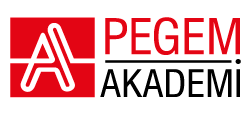Revisiting Higher Education in an Ever-Changing World
The development of and changes in higher education are parallel to the transformation societies undergo. The Industrial Revolution and the dawn of the Information Age prompted a reconsideration of the aim, structure and responsibilities of higher education. In order to keep up with the growing competition and globalization in our world, individuals are expected to be innovative, entrepreneurial and have multifaceted knowledge, attitude, and skills. Combined with digitalization, the growing competition and globalization result in considerable transformations in the social, economic and cultural spheres. As a natural consequence of this process, professional life is affected, competences expected from individuals vary, and new occupations emerge. This state of affairs, together with globalization, change the nature of the demand for higher education. Since it is inevitable that universities direct and manage the aforementioned processes, it is necessary to rethink the basic responsibilities of higher education in terms of education, research, and societal impact.
The aforementioned raises some basic questions on the agenda of higher education studies such as revision of education environments, university-society-industry collaborations, work conditions of academics, sense of management and leadership at higher education institutions, sense of higher education quality among others. The stakeholders of higher education are inclined to choose institutions which update themselves, have a transformational societal impact, are effective and productive, and adopt and apply an educational understanding which can satisfy expectations. Moreover, higher education institutions need to move beyond their traditional roles and carry out inter-disciplinary and transdisciplinary research and propose solutions for the qualitative needs of the society.
Countries are now seeking change in their higher education systems in line with their own structural, economic and cultural characteristics and the universal necessities brought about by globalization. At the center of this search towards answering the needs of the society and industry lies high quality education and research. What is more, high quality education and research must be blended and transformed into societal impact.
These discussions, have been directly or indirectly affecting many aspects of higher education from the university mission, organizational structure, and internationalization strategies to local needs, teaching methods, research approaches, university success criteria, and financing. In this context, the main theme of the International Higher Education Studies Conference is “Revisiting Higher Education in an Ever-Changing World”.
Around the main theme, the following four problem areas will be discussed extensively in order to scrutinize new approaches and produce solutions for existing issues:
1. What is the nature of the change in expectations from higher education?
2. How can we redefine the duties and responsibilities of higher education in the three main pillars of education, research and societal impact?
3. What needs to be done to realize change in the higher education systems of different countries?
4. What are the best practices that improve the quality of the higher education and integrate new approaches into it?
Adapting higher education into a globalizing and digitalizing world necessitates the discussion of many issues. In this regard, the conference aims to discuss all the topics which must to be considered on the basis of the local and international needs and expectations of higher education.
Significance of the Conference
In the time of increasing competition, higher education institutions face challenges of equipping students with qualifications expected by the worlds of business and industry. Thus, there is the utmost importance to manage the three cornerstones of higher education – education, research and societal impact – in a manner satisfying expectations, while making them sustainable and reorganize these services.
In this context, the focus points of IHEC 2018 are to understand where higher education institutions stand with regard to the needs of individuals, society and the business world. At the same time these institutions need to revise processes, procedures, and structures to develop innovative and feasible solutions to overcome emerging problems. Therefore, IHEC 2018 aims to discuss not only current approaches, but also emerging practices and processes. The conference is expected to be a platform for discussing the effect of new currents of thought such as the new industrial revolution, industry 4.0-5.0, and society 5.0, which will help manage the growth in technological power.
In order to cover the subjects from differing angles, we expect the participation of higher education policy makers, high and middle level managers, officials from all higher education faculties, departments and programs, NGOs, industry and business world representatives, researchers and academics of all disciplines in our conference. Models and suggestions proposed at the conference will be compiled to be shared with relevant policy makers and a selection from the conference papers will be published in two edited books, one in Turkish and one in English.

